Diagnostic and Statistical Manual of Mental Disorders 5th Edition, Text Revision (Dsm-5-Tr(tm))
Publisher: Amer Psychiatric Pub Inc; 5th edition (March 18, 2022)
Language: English
Paperback: 1377 pages
ISBN: 9780890425763
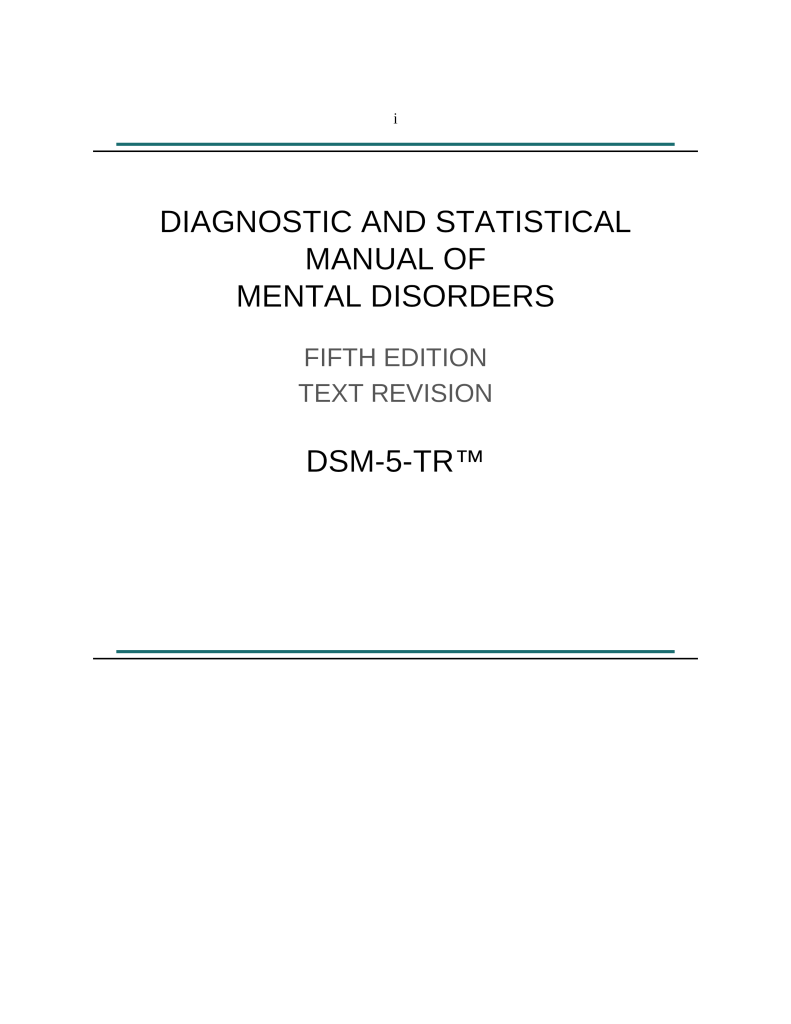
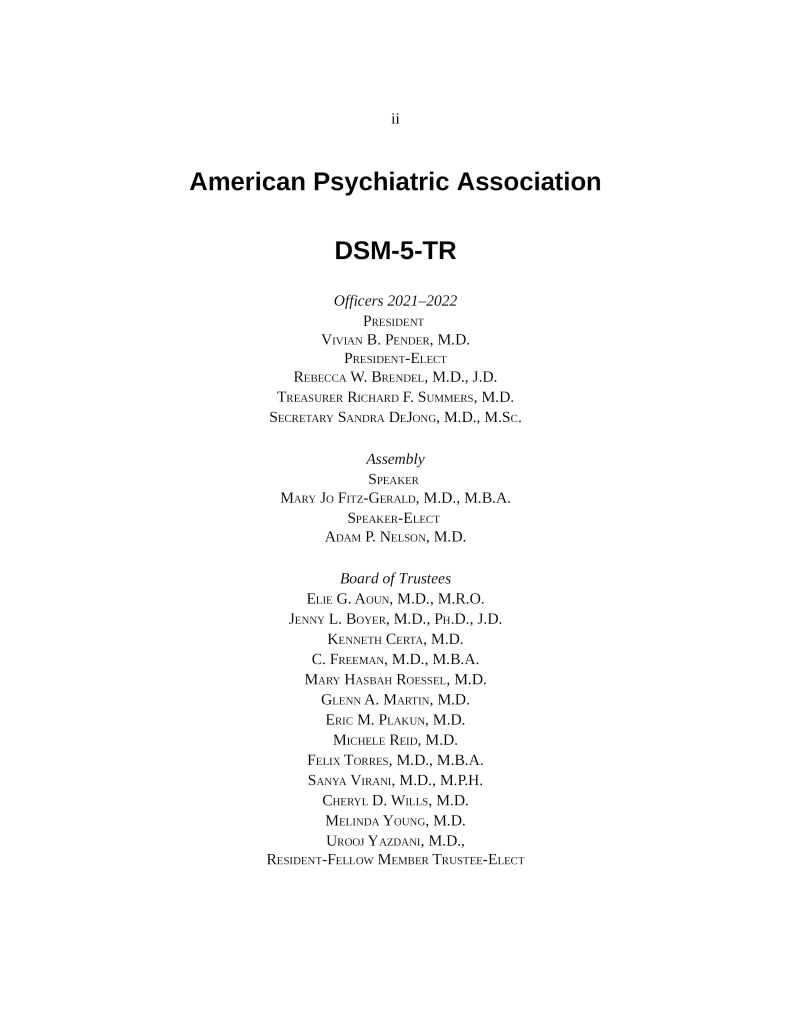
Preface to Diagnostic and Statistical Manual of Mental Disorders 5th Edition, Text Revision DSM-5-TR
The American Psychiatric Association’s Diagnostic and Statistical Manual of Mental Disorders, Fifth Edition, Text Revision (DSM-5-TR), is the first published revision to DSM-5. This revised manual integrates the original published DSM-5 diagnostic criteria with modifications (mostly for clarity) for over 70 disorders, comprehensively updated descriptive text accompanying each of the DSM disorders based on reviews of the literature since the publication of DSM-5, and the addition of a new diagnosis, prolonged grief disorder, and symptom codes for reporting suicidal and nonsuicidal self-injurious behavior. These changes differ from the scope of the prior text revision, DSM-IV-TR, in which the updates were confined almost exclusively to the text, leaving the diagnostic criteria virtually unchanged. This edition also integrates all prior online updates made to DSM-5 after its publication in 2013, in response to usage, specific scientific advances, and ICD-10-CM coding adjustments through an iterative revision process. Consequently, DSM-5-TR is the product of three separate revision processes, each one overseen by separate (but overlapping) groups of experts: the development of the original DSM-5 diagnostic criteria and text by the DSM-5 Task Force, published in 2013; updates to the DSM-5 diagnostic criteria and text by the DSM Steering Committee, which has overseen the iterative revision process; and fully updated text overseen by the Revision Subcommittee.
The clinical and research understanding of mental disorders continues to advance. As a result, most of the DSM-5-TR disorder texts have had at least some revision since the 9 years from original publication in DSM-5, with the overwhelming majority having had significant revisions. Sections of the text that were most extensively updated were Prevalence, Risk and Prognostic Factors, Culture-Related Diagnostic Issues, Sex- and Gender-Related Diagnostic Issues, Association With Suicidal Thoughts or Behavior, and Comorbidity. Also, for the first time ever, the entire DSM text has been reviewed and revised by a Work Group on Ethnoracial Equity and Inclusion to ensure appropriate attention to risk factors such as the experience of racism and discrimination, as well as to the use of non-stigmatizing language. For future periodic DSM-5-TR coding and other updates, see www.dsm5.org.
For benefit of reference in this manual, “DSM” refers generally to DSM as an entity, not specifying a particular edition (e.g., “Clinical training and experience are needed to use DSM for determining a clinical diagnosis.”). “DSM-5” refers to the entire set of currently approved criteria sets, disorders, other conditions, and content officially published in May 2013. “DSM-5- TR” refers to approved text in this current volume. Although the scope of the text revision did not include conceptual changes to the criteria sets or to other DSM-5 constructs, the need to make changes in certain diagnostic criteria sets for the purpose of clarification became apparent in conjunction with the text updates made across the book. Because the conceptual construct of criteria is unchanged, the criteria sets in DSM-5-TR that had their origins in DSM-5 are still referred to as “DSM-5-criteria.” The new diagnostic entity prolonged grief disorder is referred to as a DSM-5-TR disorder, because of its addition in this volume. The development of DSM-5-TR was a tremendous team effort. We are especially indebted to the tireless efforts of Wilson M. Compton, M.D., M.P.E., and Daniel S. Pine, M.D., as DSM-5 Text Revision Subcommittee Vice Chairs, as well as the more than 200 experts from across our field who did the lion’s share of the work in the preparation of the text revision. We would also like to thank Paul Appelbaum, M.D., Chair of the DSM Steering
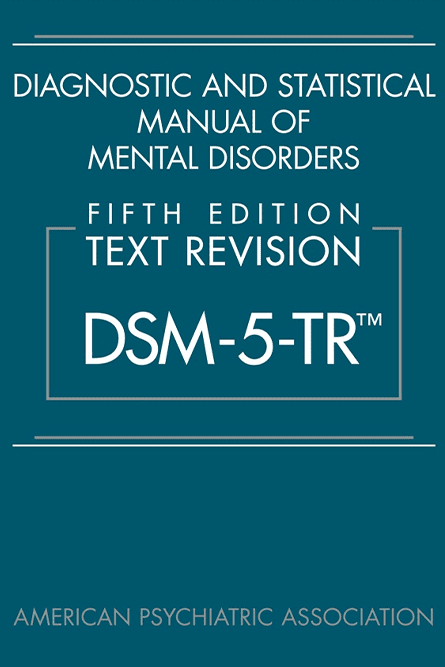
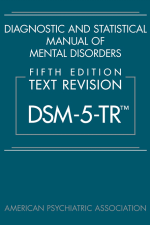
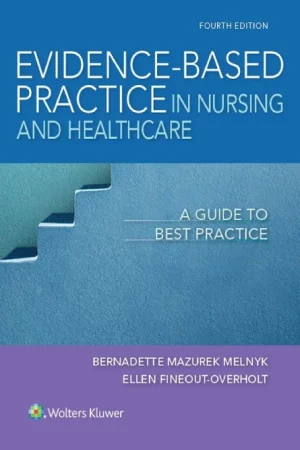
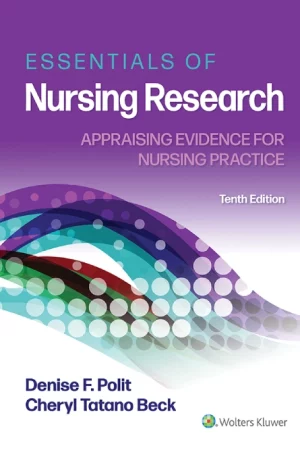
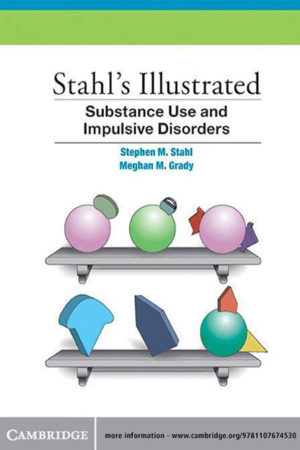
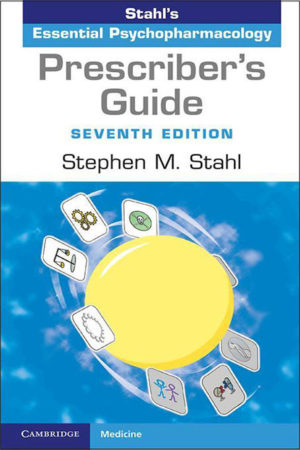
trevhall3 –
Verified Purchase
smoore4041 –
Verified Purchase